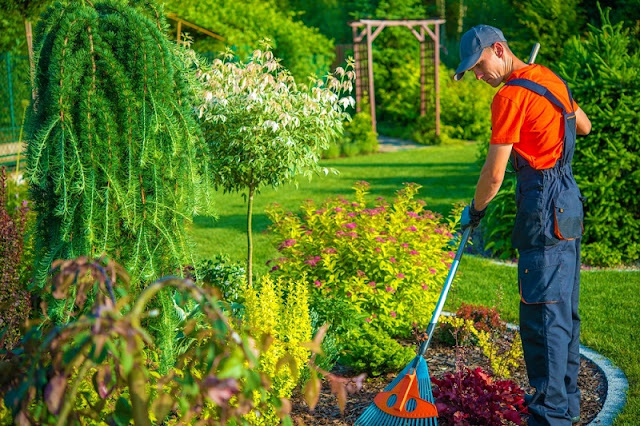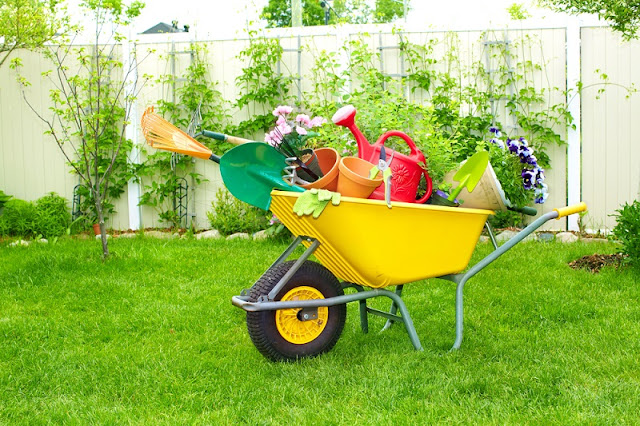Spring
is regarded to be the perfect season for backyard parties and family
celebrations. During this period, the warm sun and cool breeze bid adieu to the
winters and welcome a shiny & beautiful day. That being said, this is even
the time to pull-up your sleeves and start working on preventive garden maintenance to make them
spring-ready.
However,
the question is what exactly are the spring maintenance techniques? How beneficial
they can be for the garden? Want to know more about them and the various tips
that can be followed while performing it.
Read on further to find out.
1. Clean, Trim, & Repair
The time
has come to get rid of the debris and other particles that might have
accumulated. In addition to that, inspect the area and uproot the weeds,
ensuring that they do not grow back again. Next, trim down the perennial plants
of the garden, as pruning will prepare them for the upcoming season.
 |
Garden Maintenance
|
Because
there cannot be anything worse than removing dried twigs when other parts of
the plant are blooming. So, to avoid such situations, never forget to trim them
using efficient gardening equipment.
2. Test the Soil and Revitalize it
Understanding
the need of the soil is an essential part of the garden maintenance. Being
aware of the nutrient level and pH level can have a world of difference in
terms of the quality and health of the plants. Hence, obtain a sample of soil
to test it and then revitalize it as per its deficiencies. You can add an adequate
amount of fertilizer along with the right proportion of nutrients so that it
achieves a stable composition and enhances the lifespan of the plants.
3. Invest on High-Quality Mulch
Most of
the homeowners often overlook the importance of the mulch in their garden,
especially in spring. Now, with high-quality mulch in the flowerbeds, you can
not only retain moisture level in the soil but also prevent transpiration,
keeping the flowers fresh and roots healthy even during harsh climatic
conditions. This is the reason why it is advised to use mulch in both fall and
spring.
The
important thing to note: use only two to three inches, along with a few at the
stem of the plants, as it can fight against the rotting of the roots.
4. Plant new flowers and shrubs
Once you
have the garden in a perfect shape then the next step is to choose new plants
and flowers that will make the space even greener and richer in the spring.
Some of the common options that require minimal garden maintenance are:
- Tulips
- Redbuds
- Veggies such as arugula, lettuce, and peas
- Tomatoes
- Snapdragons
Opt for perennial plants over the annual ones, as you would probably have to
replace the annual plants each and every year. This means you are counting on
plants that will die. Hence, it will need replacement every once in a while.
5. Choose the Right Gardening Tools
 |
Garden Maintenance Tools
|
Another crucial aspect of garden maintenance is the choice of perfect tools.
Despite the efforts, quality of mulch and plants that you select, everything
will be of no use without the right range of gardening tools. After deciding
the plants that you want to have, the next step is to opt for the right tools
that can help you plant them easily.
6. Feed the Plants with Nutrients
The last
and the most important step is to feed the plants with an adequate number of
nutrients, some of which they may not be able to acquire from the soil. For
this, you can go for the natural fertilizers or propagate new plants that will
help in fixating nitrogen and other valuable nutrients.